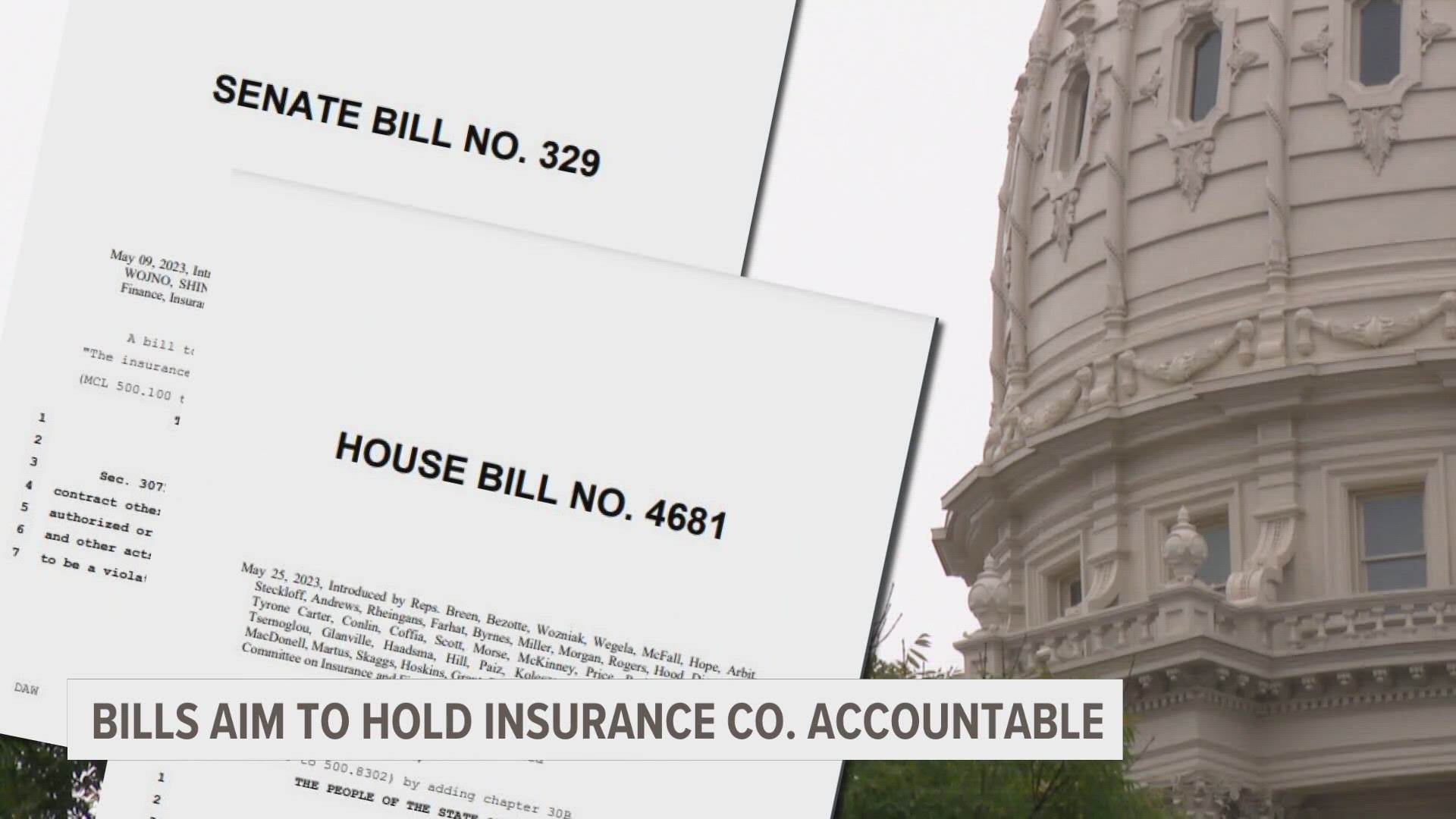GRAND RAPIDS, Mich. — A pair of newly introduced state bills aim to hold insurance companies accountable if they wrongfully delay or deny a claim, though critics say if passed, they'll raise costs for policyholders.
Attorney Stuart Sklar contributed to the language of Senate Bill 329 and House Bill 4681.
"What this bill does is hold insurance companies accountable for when they don't do the right thing. When they don't pay timely or the right amount," said Sklar, past President of the Michigan Association for Justice and Managing Shareholder at Fabian, Sklar, King and Liss, P.C.
In short, the bills:
- Require insurers to investigate, evaluate, and pay claims.
- Maintain written standards for handling claims, and provide updates every 30 days.
- Allow a policyholder to seek damages for the total cost of an insurer's bad faith dealings, including the cost of litigation.
"The insured shouldn't have to come out of their pocket and now be unable to put their business and house back together because the insurance company forced them to sue," said Sklar.
Erin McDonough is the Executive Director of Insurance Alliance of Michigan.
She's opposed to the bills because she claims they would dramatically increase rates for Michigan homeowners, drivers and businesses as they have done in other states such as Florida, Washington, and California.
"It's the way the bill allows and opens the door for all types of litigation which leads to fraud and pursuing of fraudulent claims that causes a lot of concern," said McDonough.
Sklar disagrees.
"The idea there's going to be more litigation when in reality there may as well be less because they wouldn't be forcing you to sue them all the time," he said.
McDonough adds there are already protections in place to ensure claims are paid on time.
"Michigan's Department of Insurance and Financial Services (DIFS) has a tremendous number of tools to regulate our industry from the claims process, which is what we're talking about to the rates, the rating, advertising, every aspect of our industry. They have strong tools in order to ensure insurance carriers are doing their diligence."
"DIFS is very limited in what they can do under the Unfair Trade Practices Act," said Sklar. "They can't force an insurance company to pay a claim. They can't decide competing facts..."
The ultimate question: will policyholders get more protection or higher costs?
"Hopefully by them acting in good faith, there will be less litigation and less expense to everybody," said Sklar.
"We encourage the legislature as they're looking at bills like this to be very thoughtful and data-driven at changes like this that have the potential to dramatically impact Michigan's consumers," said McDonough.
The bills were introduced in May and were last referred to the Committee on Insurance and Financial Services.
►Make it easy to keep up to date with more stories like this. Download the 13 ON YOUR SIDE app now.
Have a news tip? Email news@13onyourside.com, visit our Facebook page or Twitter. Subscribe to our YouTube channel.

